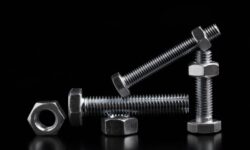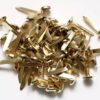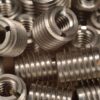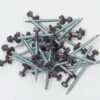Last Updated on November 16, 2022 by Marsh Fasteners
Avoid any costly surprises in the field by understanding the effect of temperature on fasteners.
The temperature of the environment in which a fastener is used can significantly affect its performance. While this is not limited to extremes and includes changes in ambient temperatures, high heat and freezing cold settings are most likely to cause problems.
Whether you are using screws, rivets, nuts and bolts, or anchors, choosing fasteners that adapt well to applications of varying temperatures can be critical.
It's Gettin' Hot in Herre*
It goes without saying that plastic fasteners risk melting when exposed to high temperatures. But metals won’t unless they reach temperatures that are exceptionally high. That must make them safe in high-heat applications then, right?
Wrong!
Metal is prone to these issues with prolonged exposure to heat:
Creep is slow deformation from constant mechanical stress that commonly occurs in extreme temperatures.
Stress relaxation is a thermomechanical phenomenon where elastic strain is slowly converted to plastic strain, even at stress levels far below the yield strength
Corrosion is a result of oxidation from heat
Thermal expansion can open up the fixing hole, leaving it loose when the fastener cools again.
Temperature Materials to use in high-heat applications Up to 450° F Low steel or medium carbon alloys Between 450° F and 900° F Stainless steel Between 900° F and 1200° F Strong alloys including Inco 718 and A-286 Exceeding 1600° F Nickel-cobalt alloys
Baby It's Cold Outside**
In sub-zero conditions, metallic materials may show these adverse effects:
Loss of ductility. In other words, less ability to undergo plastic deformation before fracturing. Metals become brittle in very low temperatures.
Decreased resistance to impact
Increased sensitivity to shock loading.
Oddly enough, the yield strength and mechanical tensile strength of some metals increase as temperatures drop!
Temperature Materials to use in cold settings Down to -100° F Nickel-rich alloys Between -100° F and -300° F Stainless steel Below -300° F Non-metallic materials
** Thanks to Idina Menzel
In situations where the effect of temperature on fasteners must be considered, contact Marsh Fasteners for high-quality products.








